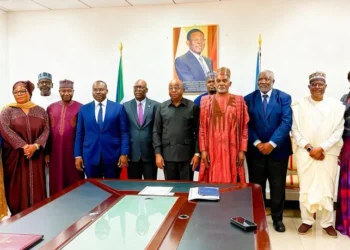The Ghana Water Company Limited (GWCL) has stated that it has raised its revenue by GH¢1,232.50, marking a 37% increase in 2022 amidst complexity issues such as galamsey operation, illegal connection, and non-payment of bills.
This achievement according to the entity is due to enhanced billing accuracy, streamlined payment processes, debt recovery efforts, and the introduction of various digital payment channels, as well as educational campaigns encouraging timely payments and tariff adjustments.
Addressing participants at the ‘Accounting To Our Customers’ press briefing and exhibition, Managing Director, GWCL, Ing. Dr. Clifford A. Braimah, highlighted the enormous revenue generated following the adoption of the digital mode of payment of bills.
He revealed that the electronic billing system has substantially increased electronic payments, reaching GH¢123.3 million in 2022.
“As of August 2023, the monthly average revenues from electronic payments have reached GH¢16.9 million, from over 86 thousand transactions,” he said.
Dr. Braimah made projections which implied that the water revenues from electronic payments will reach GH¢203 million by the end of 2023, marking a 65% surge from the 2022 figure.
Also, the company recorded a Non-Revenue Water (NRW) percentage of 46% for the first half of 2023 which is consistent with the NRW percentage recorded for the same period last year.
Following the successful completion of two external audits conducted by external auditors in October 2023, the Ghana Water Company in the face of water pollution caused by the activities of illegal mining activities (galamsey) has managed to receive the International Standard Organisation (ISO) 9001:2015 certification recommendation.
This achievement according to Dr. Braimah was attributed to the company’s capabilities to supply quality water to its consumers through the implementation of the Climate Resilience Water Safety Plans (WSP) which serves as a comprehensive assessment approach that ensures the safety and quality of drinking water.
The company has initiated some mechanisms such as the production of metering, smart metering projects, regional visits, meter testing, and verification exercises, and the innovative Water Loss Reduction Performance Based Contract (WLR-PBC) done to ensure efficient water distribution and minimize non-revenue water.
Dr. Braimah indicated that a total of 400 meters made up of magnetic and ultrasonic clamp-on meters have been produced and installed on 90 water systems, saying, ‘336 meters have already been installed with the rest to follow as chamber construction’.
“To safeguard the quality and quantity of our water sources, we have undertaken extensive dredging activities at multiple water intakes across our operational areas. By removing sediment and obstructions, we ensure a more consistent flow of water, minimizing disruptions in the supply chain,” he said.






























































